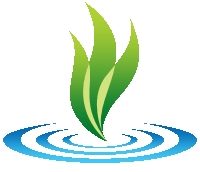Focus areas
Social development
Care waamo promotes people-centered sustainable development. Majority of the people are officially unemployed, especially young people, including those with some kind of education, have little hope of finding productive work. Women carry a disproportionate share of the social problems when coping with poverty, social disintegration, unemployment, environmental degradation and the effects of war. We are assisting therefore youth and women to create vocational training and skills that can enhance their business activities and creating techniques that help improve their daily life activities. We encourage the community, groups, and individuals to actively participate the well-being of the society.
Improving Environment
Somalia is a semi-arid country with about 1.64% arable land. Due to the climate change, the country is steadily becoming more arid and more dry-land and desertification is spreading. Rain periods are becoming un-predicted and irregular. Recurrent droughts have become a practical problem. According the drought experiences for the last decades, the drought could be expected within every three to four years. There are combined factors that cause the environmental deterioration in the region. Those factors are the rapid population growth, land degradation caused by (deforestation, continuous cropping, charcoal production and overgrazing), reduced rainfall and lack of coherent environmental policies. Their also human-made causes of the continued deterioration of this regions environment is the unsustainable pattern of consumption and production. The areas in southern Somalia and North eastern Kenya regarded as green and forest land compared to other areas in the region. But as a result of environmental change, unplanned urban development and rapid population growth, the region is facing today a huge environmental degradation. Those factors have contributed to transform a large proportion of the region into a barren land. Drought firstly affect the livestock and ultimately affect people whose livelihoods depend on the livestock and the crops then people face starvation and famine. The drought could not be stopped but impacts could be reduced and with that regard the society must learn ways to help protect themselves from the effects of drought. Our organization contribute to increase awareness on environmental issues including sustainable livelihoods amongst rights-holders. We contribute educating target groups to ways to adopt and survive the hot, the semiarid and dry characteristics of the region and the trained participators will educate the public to make adaptations of the environment. Our local activists usually raise campaigns to environmental protection, conservations, banning charcoal production and conflict resolution
Today clear desertification symptoms have started emerge. It is a time to wake up and start uniting efforts to change the trend.
Our program focuses improving the environment and the promotion of pastoral livelihoods.
1. Rangeland management skills
2. Digging water wells and water reservoirs
3. Campaigning against environmentally destructive practices such as charcoal production, deforestation activity, and unplanned destructive grazing practices.
4. Spreading the idea of replanting trees and reserving some areas to recover
Integration and peace building
The Somali society is a tribal society. Every person belongs to a specific clan and sub-clan. This kind of social system is fragile and sensitive when different clans come together to live side by side. Peace is a precondition for the realization of human and women’s rights and the eradication of poverty. However, poverty and lack of respect for human rights is the root of many armed conflicts. Therefore, the devastating impact of conflict and post-conflict situations on people is of particular concern. We benefit the theories of multiethnic, multiracial, and integration that we learned from western countries. Democratic pluralism, democratic institutions and fundamental civil liberties are fundamentals that we are going to adhere and expand. We have experiences to work in unstable environment and conflict zone. The organization has developed competence to work under threat and armed conflict and it has collaboration and understanding with all conflict parts in southern Somalia.
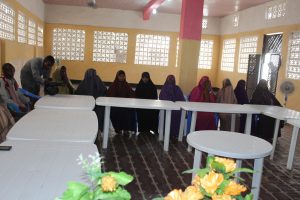
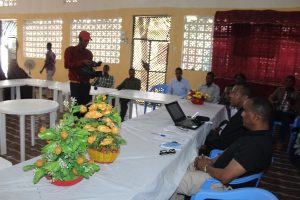
The organization works mainly in southern Somalia and has its base in kismayo city. We have today many activities in Kismayo and other areas in Lower-Jubba region. We contribute creating peace by promoting tolerance, non-violence and respect for diversity, and by settling disputes by peaceful means. We have program to spread the idea of accepting other clans to live side by side and build a new future to focus improving the live and life support. Dialogue and discussion must become the peace initiative and elders and traditional religious leaders must play their traditional mediating role.
Anti-circumcision campaign
The Somali society use one of the worst genetically surgery in the world and about 99 percent of girls and women undergo circumcision surgery. We intend informing the public about the inhuman women circumcision. Our mission is to raise awareness by using media and grass root social networks to stop circumcision.
Gender issues
The gender power relations in the area we operate exist a social system where males hold primary power and predominate roles of the political leadership, ownership and social privileges. In the family, fathers hold authority over women and children. In the project area exist the patrilineal culture, which means that property and title are inherited by the male lineage. Violence against women and girls is common and widespread because it is a tradition a man to have full control over women and girls. According the tradition, the important role to women is to reproduce children, do the house work and raise the children. Women and girls do the house work and have less formal representation and they are paid less. We have plans to contribute eliminating all forms of discrimination against women and girls. We encourage people to respect the universal declaration of human rights and we support the convention to elimination all forms of discrimination against the women and ending gender based violence.
Education
We help children and youth to attend formal and informal education. We organize to build primary schools and basic education, vocational training, cultural performances, and theater performances, sporting activities and social cohesion. We are just now trying to rehabilitate school structures and furniture to make schools available. We specially advocate girl education.
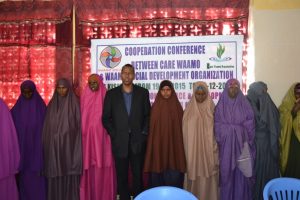
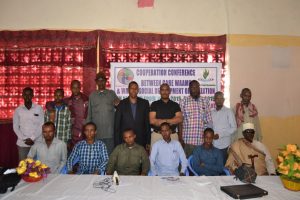
Sustainability
Our organization have plans and activities to teach pastoral-farmers how to restore productivity of the land. Those activities include planting trees, cultivating crops, cultivating forages for livestock, saving crop yields, water management, like saving water, rainwater harvesting, fixating the soil through the use of sand fences, shelter belts, enrichment of soil through planting and using bio-fertilizers. All these initiatives will certainly promote natural resources and are parts of the sustainability plan. The restoration of degraded land can restore lands biodiversity and can eventually increase lands carrying-capacity and can therefore create livelihoods to the people. Furthermore, our sustainability plans are aimed to educating people with conflict resolution techniques by peaceful means.
What we do in the internal displaced people
We currently provide the following services:
To support Nomadic children and Families.
- To improve basic educational performance
- To offer access to literacy
- To empower women through capacity building and basic education.
- Provide training and counseling on nutritional health care, FGM and HIVAIDS pandemics.
- Provide feeding centers to vulnerable groups such as old, poor, lactating mothers and children.
- To provide relief assistance to the neediest groups of the society.
- Provide water service support such as boreholes, dams, pans etc
- Provide support to self-help projects and community institutions such as small scale
- Agricultural Irrigations, Schools and Health Centers.
- “Promote activities to ensure within Social Watch the credibility, transparency and democratic practice
We share the conviction that democracy and social development are indispensable for the achievement and maintenance of peace and security in the region. We are convinced that our focus areas are interdependent and mutually reinforcing components of sustainable development, which is the framework for our efforts to achieve a higher quality of life for the people in the region o contribute the well-being of their families, their communities and humankind. The most productive policies and investments are those that empower poor people to maximize their capacities, resources and opportunities. The development efforts cannot be sustained without the participation of women and the youth.
